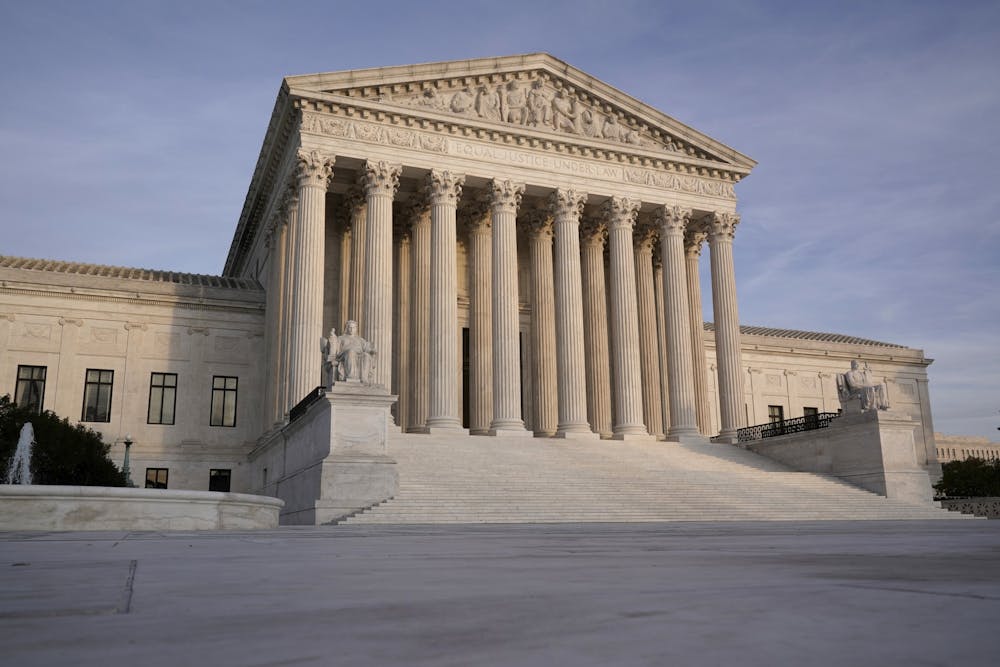The U.S. Supreme Court ruled against affirmative action at all colleges and universities in a landmark case June 29.
The Court ruled the affirmative action admission policies of Harvard and the University of North Carolina, which considers potential students’ races to decide admission, are unconstitutional.
The Court decided colleges and universities can no longer take race into consideration during the admissions process. Until now, a 1978 Supreme Court decision ruled colleges and universities may consider race and ethnicity in admission.
Students for Fair Admissions, a student activist group, brought cases against both colleges in 2014 for discrimination against white and Asian American applicants.
Florida universities haven’t used race as a factor in admissions for decades due to the One Florida Initiative implemented in 1999. The initiative was an effort to increase diversity in the state without using discriminatory practices.
Right after UF stopped considering race as a factor in admissions, there was an increase in Black and Hispanic student admissions. However, two decades later, the gap between white and minority students at UF has only grown.
The Florida Board of Governors establishes that all Florida universities must not include preferences based on “race [or] color” during the admissions process, according to its admissions regulations.
“Florida is proof that diversity can be achieved without affirmative action,” the BOG wrote in a statement.
The majority of the Court, including all six conservative justices, believes the universities violated the equal protection clause of the 14th Amendment.
The majority ruled affirmative action at these colleges involves “racial stereotyping.”
The minority of the Court, including justices Sonia Sotomayor, Ketanji Brown Jackson and Elena Kagan, dissented in support of affirmative action.
“Today, this Court stands in the way and rolls back decades of precedent and momentous progress,” Sotomayor said.
UF describes itself as a diverse and equitable environment for all students and employees, according to its website.
The university prohibits discrimination on the basis of race, according to its regulations.
UF Spokesperson Cynthia Roldan wrote in an email there is no single factor that influences admissions decisions, including race.
“[UF is] guided by a comprehensive, holistic review process that evaluates the academic and nonacademic criteria of applicants, in addition to requirements under federal and state laws as well as the Florida Board of Governors’ regulations,” Roldan wrote.
While Florida university and college students aren’t directly impacted by the Supreme Court’s decision, they feel strongly about the wider implications.
Oscar Santiago Perez, a 20-year-old political science and criminology senior, thinks the Supreme Court striking down affirmative action only regresses university communities, they said.
While Florida has banned affirmative action for the last two decades, Santiago Perez worries how this will affect students at universities all across the nation that employ affirmative action techniques.
“I think that affirmative action served to correct the harm that was done to minority groups,” Santiago Perez said. “[It was also] in line with policies that were enacted during the Reconstruction period to ensure that Black Americans could be on equal footing in this country.”
Mikayla Stesney, an 18-year-old Santa Fe College health sciences sophomore, doesn’t agree with the Supreme Court’s decision but believes affirmative action can be useful or harmful depending on how it’s implemented, she said.
“Race and minority status are important to consider when looking at an applicant, however, other data needs to be looked at … to make sure admissions is conducted with a holistic review of each applicant,” Stesney said.
Affirmative action can bring diversity to a campus and give students the opportunity to expand their own views, she said.
“The question that comes to mind is why would the Supreme Court feel the need to restrict something that has been shown to be useful for a student body,” Stesney said.
Jude Singleton, a 20-year-old UF linguistics junior, believes false narratives surrounding affirmative action fueled the decision, they said.
“A lot of the dominant conservative coverage is eager to fantasize about some elimination of qualified white students from college campuses having been averted by the Court’s decision,” Singleton said.
Prohibiting affirmative action will negatively impact BIPOC communities who face discrimination in the face of systemic issues, they said.
UF College Democrats released a statement opposing the Court’s decision.
“The University of Florida College Democrats vehemently opposes this decision as it does not promote values of equity and fairness that the US should exemplify,” the organization wrote in a statement.
Joaquin Rafaele Marcelino, an 18-year-old UF biochemistry and political science sophomore, thinks the decision provides an opportunity for unity.
During a time of attacks against diversity, equity and inclusion at universities, students should be focusing on fighting legislators who want to erase diverse communities, they said.
“It is important that we recognize that minority communities should come together to uplift each other and that there is strength and better futures when we work together — not when fighting each other,” Rafaele Marcelino said.
Contact Claire, Garrett and Vivienne at cgrunewald@alligator.org, gshanley@alligator.org and vserret@alligator.org. Follow them on Twitter @grunewaldclaire, @garrettshanley and @vivienneserret.

Claire Grunewald is a fourth-year journalism major and the Spring 2024 Editor In Chief of The Alligator. In her free time, she likes to go to concerts and attempt to meet her Goodreads reading goal.
Garrett Shanley is a fourth-year journalism major and the Spring 2025 university editor for The Alligator. Outside of the newsroom, you can find him watching Wong Kar-Wai movies and talking to his house plants.
Vivienne Serret is a UF journalism and criminology senior, serving as the Fall 2024 race and equity reporter for The Alligator's Enterprise desk. She previously worked as a columnist and previously reported for The Alligator's university desk as the student government reporter. She loves karaoke and lifting at the gym.






